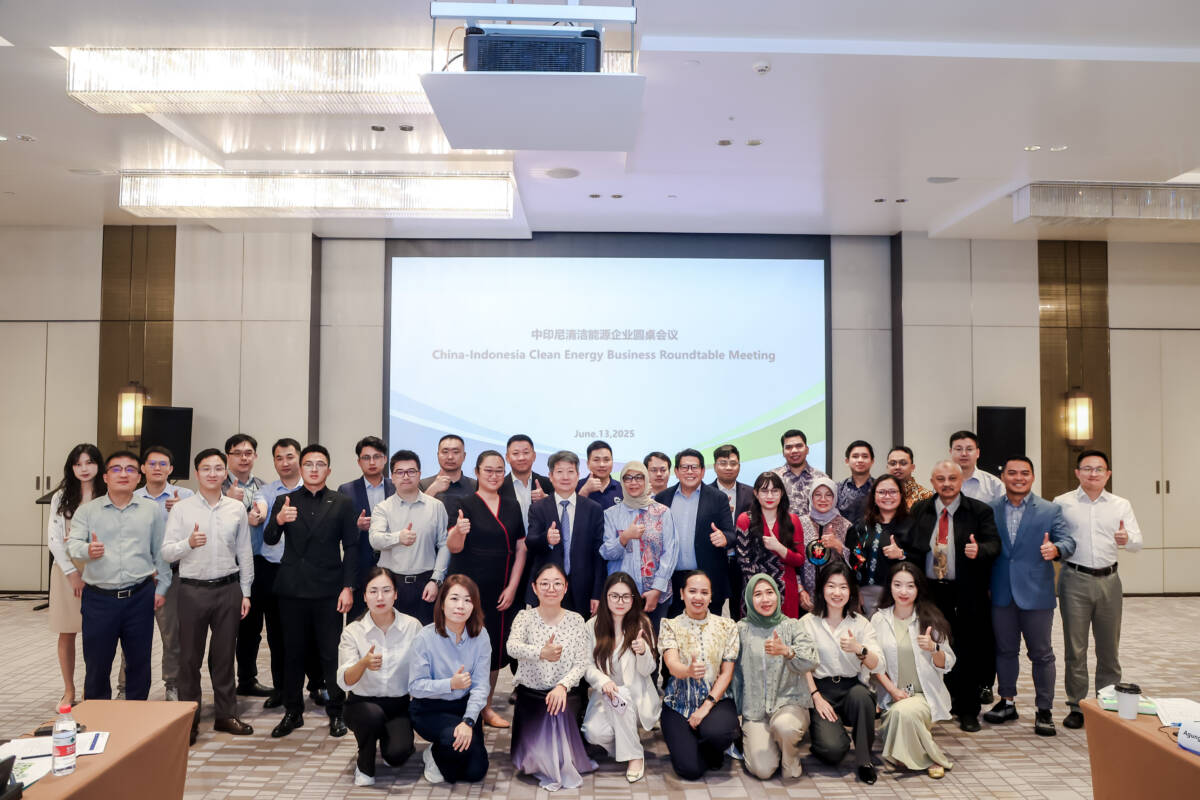Shanghai, June 13, 2025 – The Institute for Essential Services Reform (IESR) views that as a leader in renewable energy technology, China has invaluable experience for Indonesia in its efforts to achieve its energy transition targets. IESR Executive Director, Fabby Tumiwa, stated that Indonesia can utilize China’s expertise, especially in terms of investment, infrastructure capacity development, and renewable energy technology.
He conveyed this view at the China-Indonesia Clean Energy Business Roundtable in Shanghai, Friday (6/13). The event was attended by an Indonesian delegation led by the Institute for Essential Services Reform (IESR) and was organized jointly by the Center for Research on Energy and Clean Air (CREA) and the World Resource Institute (WRI) China. This activity is part of a series of activities for the 75 Years Indonesia–China Exchange Visit, which will be held from June 10-14, 2025. This activity aims to strengthen bilateral relations between Indonesia and China, with a focus on the development of clean energy and sustainable energy transition.
“Through the established cooperation, Indonesia is expected to accelerate the achievement of carbon emission reduction targets and increase renewable energy capacity that contributes to the national energy mix. In addition to investment support, Indonesia also needs technology that can support the development of solar, wind, and hydrogen energy, which are the main priorities in the National Energy Policy (KEN),” he said.
Fabby said that Indonesia has a very large and financially feasible potential for renewable energy projects, with the potential for solar energy projects reaching 165.9 GW, wind 167 GW, and microhydro 0.7 GW. However, to realize this potential, Indonesia needs major efforts in terms of policies and more massive investment in the renewable energy sector.
“One concrete step that can be taken is to accelerate the development of renewable energy capacity by involving the private sector and existing investment opportunities must be utilized as much as possible, especially by involving China as a strategic partner in the development of renewable energy infrastructure,” he said.
However, Fabby highlighted the challenges faced by Indonesia in the energy transition process. One of them is the need for more consistent policies and support for sustainable investment in the renewable energy sector. In addition, easier access to financing, especially for local investors, is still a major obstacle in accelerating the development of renewable energy projects.
“Another challenge is the limited human resources skilled in the field of clean energy. For this reason, Indonesia needs to build human resource capacity through education and training that focuses on green jobs, as well as strengthening partnerships between the government, the private sector, and the community,” he said.

